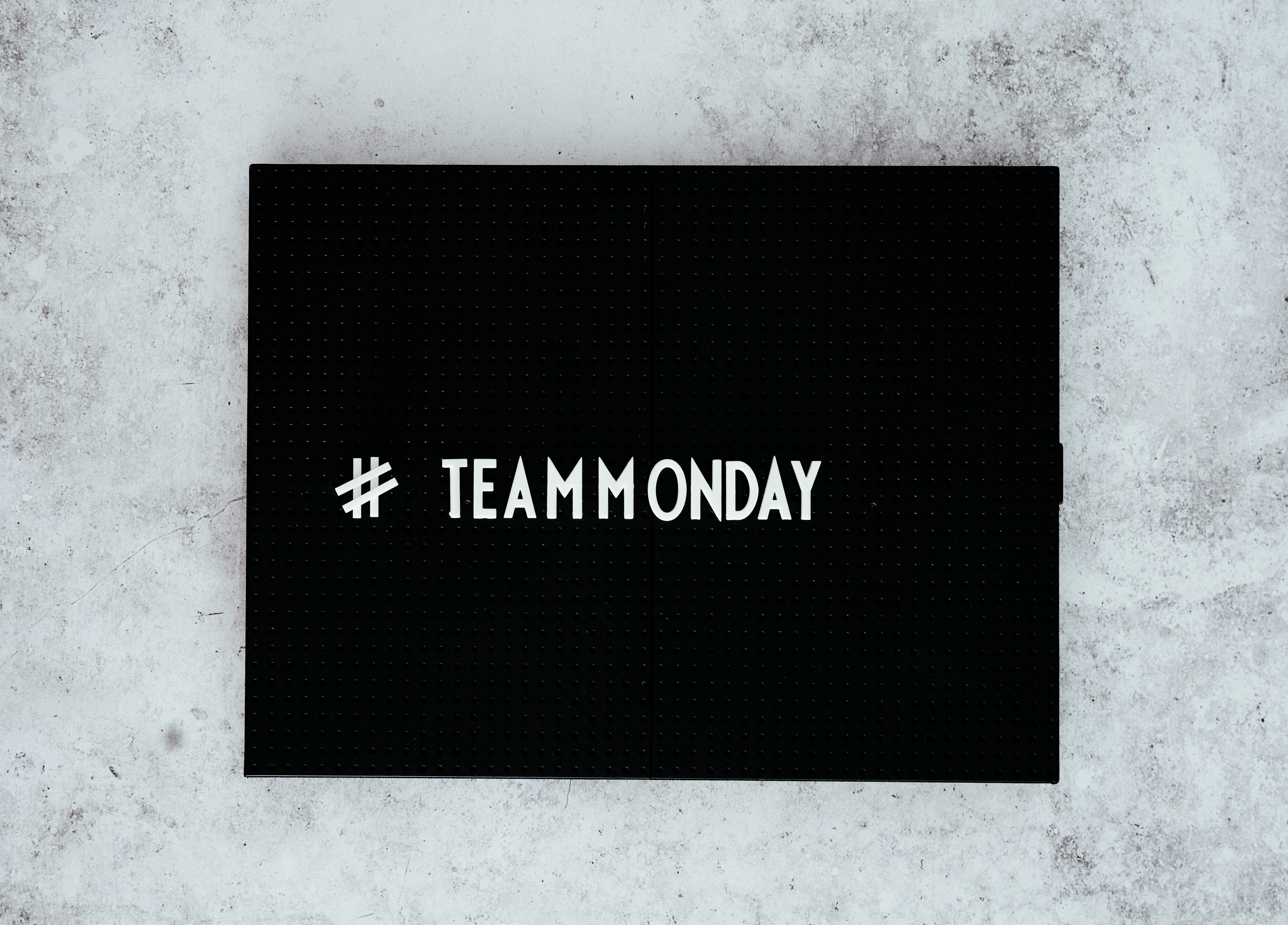Monday blues
Do you know the feeling of just not wanting to get out of bed when your alarm clock sounds on Monday morning? You don’t feel like working at all? You’d rather turn over and go back to sleep? Don’t worry – you’re not the only person to feel like this. The previous two days were lovely, but too short. Nevertheless, we have to make an effort and start the new week. And the good news? Even Monday is only 24 hours long. This article will tell you whether the Monday blues actually exist and whether they have anything to do with the Sunday blues.
What is behind the Monday blues?
The Monday blues are a phenomenon in which some people feel worse on Monday than they do on other days of the week. The mood on Monday is apparently particularly low, and the desire to work practically nil. Do you feel that you are less on the ball on Monday? Unmotivated? The Monday blues are highly controversial in research and the findings are correspondingly heterogeneous, which means that no clear conclusions can be drawn. So whether the Monday blues exist is actually questionable. The 2021 study by Olivier Weigelt et al. concluded that people’s vitality rises continually over the weekend, then drops on Monday and remains at about the same level until Thursday, and then starts to increase again on Friday (the «TGIF»-effect). So people have around the same level of vitality throughout the week. Recorded wellbeing also did not show any differences between the weekdays. The people surveyed did not seem to feel any worse on Mondays than they did on Tuesdays, Wednesdays or Thursdays. It should be noted here that the results are based on the averages of the people surveyed. If you look at the individuals, you established that there were both people who felt worse on Mondays and people for whom it made no difference. It is highly probably that there are also people who even feel better on Mondays. The authors cite the strong contrast between the weekend and Monday as a possible reason (for the poorer subjective perception of Monday). Many people experience highs at the weekend. The following Monday seems like a low in comparison with this high. Another reason could be changed sleep habits. At the weekend we often stay up later and get up later on the following day. When the alarm clock suddenly goes off two hours earlier on Monday, our internal clock is out of rhythm. The sleep hormone melatonin is still active in our bodies and depresses the mood.
Another research group established that people are less happy at the beginning of the week and aware of more stress factors. What now? Do the Monday blues exist, or not? The meta-analysis by Areni et al. provides an interesting answer. They discovered that the effect is only exhibited if the people are asked about their mood retrospectively. If moods were measured in real time, the Monday blues were not found. Why is that? We struggle to remember our exact emotional state after the event. If we are asked how we felt last Monday morning, then we very quickly think that we had to go to work, while other, positive events that we may have experienced on the same Monday are blanked. Frequently, only the negative aspects are accentuated when we think about work. This then logically influences our statements about our mood. It’s exactly the other way round with the weekend: if we are asked, the stereotypical associations (e.g., enjoyable activities, light-heartedness, fun) are activated in the brain. Evaluated with hindsight, can a weekend possibly have been even not bad? After all, we weren’t at work!
If you work at the weekend, it’s possible that the Monday blues won’t appear on Monday, but on the day after your «weekend».
Is there such a thing as Sunday blues?
There are people who don’t particularly like Sundays. Just the thought that Monday is around the corner can trigger a stress reaction in some people. However, there are very few studies on this phenomenon. It’s possible that some people are in a low mood on Sunday and perceive it as Sunday blues, in a manner of speaking. So both Sunday blues and Monday blues seem to be personal phenomena.
What can I do to counteract them?
Our mood is very important for our mental health and wellbeing. In the long run, it even affects our working behaviour and performance. We should not simply ignore this, because there are indications that our mood is a bit lower at the beginning of the week than it is at the end. Below you will find a few tips to take away:
- So you can keep up your momentum after the weekend, it’s worth approaching the start of the week with a positive attitude. Tackle the new week’s challenges with optimism. Try to look forward to them.
- Sleep is hugely important. To counteract a supposed Monday low on Sunday, you should make sure you get enough sleep. So don’t go to bed too late on Sunday evening.
- Prepare Monday in the office before the weekend. Plan and write notes about what is pending for Monday. This way you will prevent Monday from starting chaotically and you will find it easier to leave your job in the office over the weekend, because you’re not constantly thinking about it. You can read this article for tips on improving your time management skills.
- For Monday, plan and then do work that you like doing. Maybe it will help you to do routine tasks first, so you can start tackling more challenging work on the following days.
- If your employer allows, start a little later on Monday.
- Try having a cold shower or taking some exercise on Monday morning, as this will help you to wake up faster.
- Plan something you can look forward to for Monday evening. A nice dinner with friends, a bike ride with a picnic in the open air, or a long walk. What would you look forward to after a day at work?
- Don’t think about Monday on Sunday. If thinking about Monday stresses you, try to consciously push it to one side, and do something that you love.
- Do you generally find it hard to switch off on Fridays and start your weekend? Then consider a Friday ritual that you follow every week, to signal that work can now wait until Monday without a guilty conscience. This could be a relaxing bath, going out on your bike or for a walk, listening to music, etc. This way your brain will learn that this particular activity heralds the weekend and now rest and relaxation are the order of the day!
References
Akay, A., & Martinsson, P. (2009). Sundays are blue: Aren’t they? The day-of-the-week effect on subjective well-being and socio-economic status. IZA – Institute of Labor Economics. http://dx.doi.org/10.2139/ssrn.1506315
Areni, C. S., Burger, M., & Zlatevska, N. (2011). Factors affecting the extent of Monday blues: Evidence from a meta-analysis. Psychological reports, 109(3), 723-733. https://doi.org/10.2466/13.20.PR0.109.6.723-733
Hülsheger, U. R., Uitdewilligen, S., Zijlstra, F. R., & Walkowiak, A. (2022). Blue Monday, yellow Friday? Investigating work anticipation as an explanatory mechanism and boundary conditions of weekly affect trajectories. Journal of Occupational Health Psychology. Advance online publication. https://dx.doi.org/10.1037/ocp0000330
Pindek, S., Zhou, Z. E., Kessler, S. R., Krajcevska, A., & Spector, P. E. (2021). Workdays are not created equal: Job satisfaction and job stressors across the workweek. Human Relations, 74(9), 1447-1472. https://doi.org/10.1177/0018726720924444
Specker, M. (2017, 16 February). Was steckt hinter dem Montagsblues? iMpuls. https://impuls.migros.ch/de/entspannung/work-life-balance/arbeit-und-gesundheit/montagsblues
Stone, A. A., Schneider, S., & Harter, J. K. (2012). Day-of-week mood patterns in the United States: On the existence of ‘Blue Monday’, ‘Thank God it’s Friday’ and weekend effects. The Journal of Positive Psychology, 7(4), 306-314. https://doi.org/10.1080/17439760.2012.691980
Wagener, J. (2020, 27 January). So besiegst du den Blues vom Wochenende. Zeit Online. https://www.zeit.de/zett/2020-01/so-besiegst-du-deinen-sonntagsblues
Weigelt, O., Siestrup, K., & Prem, R. (2021). Continuity in transition: Combining recovery and day‐of‐week perspectives to understand changes in employee energy across the 7‐day week. Journal of Organizational Behavior, 42(5), 567-586. https://doi.org/10.1002/job.2514
 subscribe to newsletter
subscribe to newsletter


